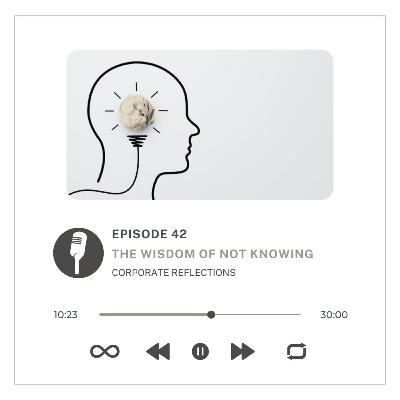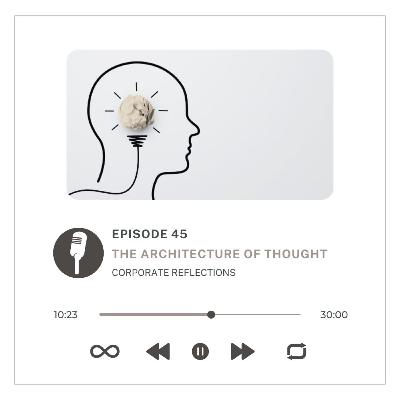Corporate Reflections : The Wisdom of Not Knowing
Description
This reflection draws inspiration from several thinkers who challenged conventional notions of knowledge and certainty :
• The Socratic Paradox ("I know that I know nothing") by Socrates : This is the most direct and foundational inspiration. Socrates’s entire philosophical method was built on the premise that true wisdom begins with the admission of one's own ignorance. By asking questions and revealing the lack of knowledge in those who claimed to be experts, he demonstrated that the person who knows they don't have all the answers is a step ahead of those who believe they do. The reflection's core argument—that "I don't know" is a doorway to wisdom—is a direct echo of Socratic thought.
• The Growth Mindset by Carol Dweck : This modern psychological concept perfectly explains the second half of the reflection. Dweck's work distinguishes between a "fixed mindset" (believing intelligence and ability are static traits) and a "growth mindset" (believing they can be developed through effort and learning). The reflection’s contrast between "a fixed, rigid structure" of knowledge and an "evolving map," and its focus on "discovery" and "growth," are core tenets of Dweck's theory.
• The Power of Vulnerability by Brené Brown : While not explicitly mentioned, the application of this idea to leadership and relationships strongly aligns with Brown’s research. She argues that showing vulnerability—such as admitting a mistake or saying "I don't know"—is a sign of courage and is essential for building trust and genuine connection in both professional and personal settings.
• Falsifiability by Karl Popper: In the philosophy of science, Popper argued that a scientific theory is only valuable if it can, in principle, be proven wrong (falsified). This concept reinforces the idea that all knowledge is provisional and open to revision. The reflection's premise that a mind must be open to changing its view is a philosophical extension of Popper's scientific principle
























